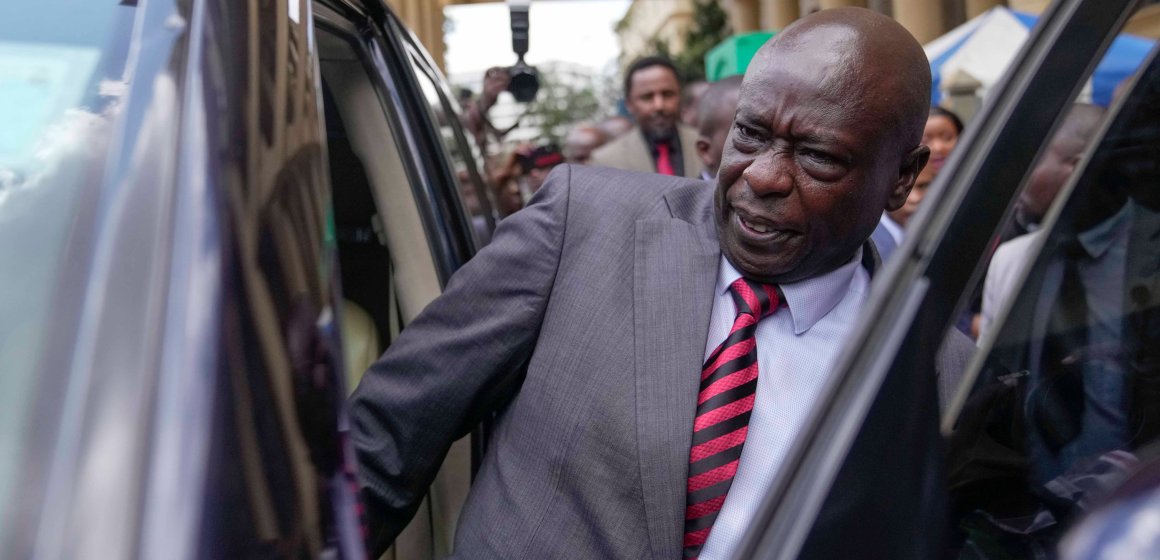|
LISTEN TO THIS THE AFRICANA VOICE ARTICLE NOW
Getting your Trinity Audio player ready...
|
Impeached Deputy President Rigathi Gachagua took his battle to the Court of Appeal Monday, October 28, challenging a decision by a High Court bench that dismissed his bid to contest the powers of Deputy Chief Justice Philomena Mwilu in appointing judges to his impeachment case. Gachagua’s appeal comes on the heels of last week’s ruling by a three-judge panel, which confirmed Mwilu’s authority to constitute the bench, a decision that Gachagua claims is fundamentally flawed.
Gachagua, through his legal team, expressed dissatisfaction with the judgment, arguing that the bench’s interpretation of the Constitution was misguided. He maintained that the ruling was “erroneous” and lacked proper constitutional basis. His appeal seeks to freeze further proceedings in the High Court until the Court of Appeal can weigh in, asserting that any further actions without such an intervention would infringe on his right to a fair trial. In his submission, he argued that failing to suspend the High Court’s processes would render his ongoing legal case “moot and irrelevant.”
The legal tussle stems from a contentious interpretation of the Deputy Chief Justice’s administrative powers. At the core of Gachagua’s petition lies a belief that Mwilu overstepped her constitutional role by forming the bench that ultimately upheld his impeachment. Gachagua’s attorneys argue that the Constitution only allows Mwilu to perform specific administrative duties and that the power to constitute benches rests solely with Chief Justice Martha Koome, except under narrowly defined circumstances. The three-judge panel, comprising Justices Freda Mugambi, Eric Ogola, and Antony Mrima, ruled otherwise last week, implying that Mwilu’s administrative responsibilities include stepping in for the Chief Justice when necessary.
Gachagua further contended that he had made “oral applications” to extend interim orders protecting him from immediate legal ramifications, but the panel had denied his request. His lawyers claim this refusal was “unlawful, unprocedural, and incorrect,” adding that the denial has placed him at risk of proceeding without the critical protections he sought.
This legal saga has brought fresh scrutiny to the functions of Kenya’s judiciary, with some analysts observing that it highlights potential ambiguities in the Constitution’s delineation of roles within the judiciary’s top offices. At present, the stakes for Gachagua are high, as the appellate court’s decision could determine whether he receives the fair trial protections he argues are constitutionally guaranteed.
Gachagua’s plea for a stay on the proceedings highlights his apprehension about the ongoing High Court case, fearing that a lack of intervention could result in what he described as “irreparable prejudice.” His appeal, therefore, not only challenges the ruling but seeks a broader clarification on judicial roles—a matter likely to impact future interpretations of Kenya’s constitutional mandates for high-ranking judicial officers.











LEAVE A COMMENT
You must be logged in to post a comment.